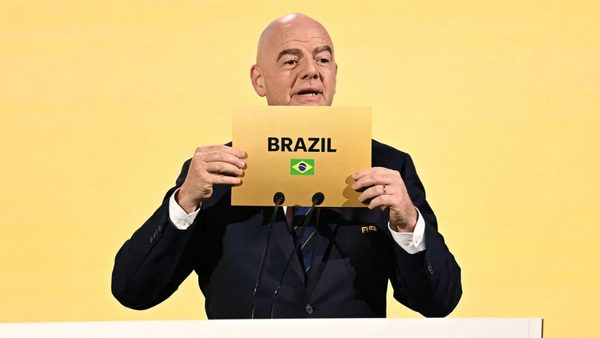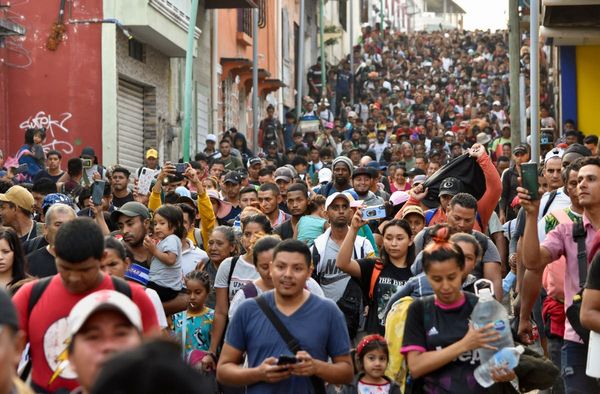
Order is beginning to collapse in the besieged Gaza Strip after thousands of desperate people raided UN warehouses in search of food, as the international criminal court’s top prosecutor said impeding relief supplies to the population may constitute a crime under the court’s jurisdiction.
Wheat, flour and hygiene supplies were taken from on Saturday from four UN-run centres across the blockaded 25- by 7-mile strip, home to more than 2 million trapped people, Thomas White, Gaza director for the UN’s agency for Palestinian refugees (UNRWA), said on Sunday.
“This is a worrying sign that civil order is starting to break down after three weeks of war and a tight siege,” White said. “The needs of the communities are immense, if only for basic survival, while the aid we receive is meagre and inconsistent.”
Basic services in Gaza have crumbled after three weeks of a near-total blockade imposed by Israel, leaving people vulnerable to serious outbreaks of disease as streets overflow with sewage, while food, water and medicine run out. On Sunday, as phone networks and the internet slowly came back online after a near total 48-hour communications blackout on Friday night, social media posts from people in Gaza featured tributes mourning the loss of people killed in the escalation of fighting, and requests on where to find clean water.
Speaking after a visit to the Rafah border crossing on Sunday, the ICC’s top prosecutor, Karim Khan, said the court had opened investigations into alleged crimes committed by both sides in the war.
In relation to aid supplies, he said: “There should not be any impediment to humanitarian relief supples going to … civilians. They are innocent. They have rights under international law … These rights … give rise to criminal responsibility when they are curtailed.”
Col Elad Goren, head of the civil department at Cogat, the wing of the Israeli defence ministry responsible for civilian operations in the occupied Palestinian territories, said there were plans for a “dramatic increase” in aid into the strip through the Rafah crossing with Egypt in coming days.
On Sunday, 33 trucks carrying water, food and medicine entered from Egypt, a spokesperson at the Rafah border crossing told the Associated Press.
In an interview with the Guardian, the Palestinian prime minister, Mohammad Shtayyeh, said his West Bank-based Palestinian Authority had no intention of taking control of Gaza after the conclusion of Israel’s offensive without a comprehensive agreement that included the West Bank in a Palestinian state.
“I don’t accept it. Our president [Mahmoud Abbas] does not accept it. None of us will accept it,” Shtayyeh said in response to statements by Israeli civilian and military officials that their plan for the end of the Gaza war was some form of transitional authority, perhaps involving Arab states.
Israel sharply escalated an already devastating aerial campaign on the coastal exclave on Friday night. More than 8,000 people have died in Gaza since the Hamas attacks on 7 October, according to the Hamas-run health ministry – an unprecedented figure in the decades-old Israeli-Palestinian conflict.
Under cover of air strikes and artillery bombardment, Israeli ground troops, tanks and artillery units have begun moving into the north of the strip in Beit Lahia and Beit Hanoun in what the Israeli prime minister, Benjamin Netanyahu, described as the “second stage” of the war triggered by Hamas. The Palestinian militant group killed 1,400 people across southern Israel and kidnapped at least 230 hostages during its rampage.
In other developments on Sunday:
A UN peacekeeper on the Blue Line between Israel and Lebanon was injured in cross-border fire, the world body said.
Rishi Sunak and Emmanuel Macron “stressed the importance of getting urgent humanitarian support” into Gaza.
Jack Sullivan, Joe Biden’s national security adviser, said the US believed “there should be humanitarian pauses to get hostages out, potentially to get aid in”.
A delegation of families of Israeli hostages being held by Hamas urged President Isaac Herzog to keep their plight at the top of the political agenda.
The Israel Defence Forces said that over the past 24 hours they had hit 450 targets belonging to Hamas, which gained control of Gaza in 2007, including command centres, observation posts and anti-tank guided missile launch positions, as well as another 150 targets underground in the north of the territory.

Ground fighting was also reported to the east of the Bureij refugee camp and the city of Khan Younis in central Gaza – approach routes for Israeli incursions in the past.
Goren said his unit was closely monitoring the humanitarian situation in Gaza. Before Sunday a total of 84 aid trucks had entered Gaza, compared with an average of 500 a day before the outbreak of hostilities. UNWRA, the UN body for refugees, said on Sunday that at least 40 a day were needed to stave off a worse humanitarian disaster.
Goren also said that in coordination with the UN, the army was opening a new humanitarian zone in Khan Younis, a city in the south of the strip, which he said would not be targeted by Israeli bombing.
When asked by the Guardian for details, the colonel did not give the location or size of the new “safe zone”, but said it could hold “hundreds of thousands of people” in a “relatively open area”.
Goren also accused Hamas of using the area’s civilian population to further its operational goals, withholding stockpiles of water, food, medical supplies and petrol in order to fuel the humanitarian crisis and slow the Israeli advance. Cogat, citing coordination with the UN, said there was “not a food and water shortage” in the strip, although the supply was “not at a normal level” and access was more difficult in some areas than others.
Cogat had restored supply to a water pipeline in Bureij on Saturday, Goren said, allowing 28.5m litres of water into the area. Another pipeline was briefly opened in Beni Suheila last week, representing just 4% of the usual amount of water the strip uses each day.
On Sunday, the Palestinian Red Crescent Society said it had received a second order to immediately evacuate al-Quds hospital in Gaza City, after an initial warning last week. Munitions had landed 50 metres from the site, where 14,000 people are sheltering, it said. In a briefing with reporters, an Israeli military spokesperson declined to comment when asked about the Palestinian Red Crescent statement.
Hamas, like many urban fighting forces, is known to take advantage of the cover provided by civilian infrastructure, including hospitals, schools and residential high-rises, but the UN and other international actors have stressed that the buildings first and foremost serve the civilian population.
Civilians reached by the Guardian via WhatsApp in the southern half of the strip, to which the IDF has repeatedly ordered civilians to evacuate, said there was still little in the way of clean water for drinking, cooking or washing, and that bombing of the area continues.
“We had to leave our house when they bombed my aunt’s house next door. They killed 26 people including 11 children and our house was damaged too,” said Mohammed Bashir, a 38-year-old accountant from the central town of Deir al-Balah. “Water is our main worry. I did not find any yesterday and my youngest child is sick. We can’t wash her.”
Concerns remain that the fighting in Gaza could spread to other fronts, most urgently Israel’s northern frontier with Lebanon, where it has been engaged in cross-border skirmishes with the powerful Iran-backed militant group Hezbollah.







